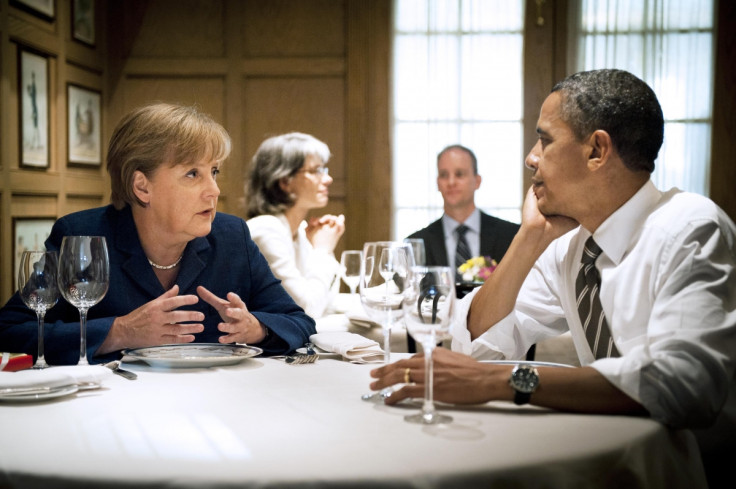TTIP: Opponents Attack Negotiations as Undemocratic and Lacking Transparency

As the fifth round of discussions over the controversial Transatlantic Trade and Investment Partnership continue in Arlington, Virginia, a group of 120 European NGOs has attacked its "lack of transparency and democratic procedures".
In a joint statement issued today, the organisations, which include Greenpeace, Unison, World Development Movement and War on Want, demanded that "the EU Commission's negotiation texts as well as all negotiation documents must be made public to allow for an open and critical public debate on the TTIP".
It comes as the debate over free trade begins to heat up. Today, the UK Chancellor George Osborne will attack UKIP and Labour as being "anti-free trade", claiming that the pair wish to "pull up the drawbridge and shut Britain off from the world".
Alexa Wesner, US Ambassador to Austria, today said: "TTIP is going to be a historical landmark agreement. It will increase trade, jobs and economic vitality in Europe and in the US."
However, concerns exist over the levels of deregulation the treaty's adoption would lead to.
The signatories said: "Evidence from business and industry positions reveals that the focus on non-tariff barriers and regulatory convergence is being used to push deregulation, increased investment guarantees, intellectual property rights leading to monopolies, and a race to the bottom. The proclaimed but unsubstantiated economic benefits are marginal to society at large even in the best case scenarios. All evidence to date suggests that these goals threaten important rights acquired in long democratic struggles and societal interests of the public in the EU, US, and the rest of the world."
Signatories to the document include anti-fracking groups, a breast cancer charity, a host of trade unions, anti-poverty charities and green groups.
In a statement issued to IBTimes UK explaining its opposition, Greenpeace said:
"The EU-US Free Trade Agreement (TTIP) in its current format represents a threat to European consumer protection. US exporters of corn, soy, pork or chicken don't only want to sell their genetically modified crops, chlorinated chicken and hormone meat on the European market. They want to weaken European methods of risk assessment and the precautionary approach, which is fundamental to protect the environment and the health of Europeans.
"Currently GMOs are one of the most contentious issues of TTIP negotiations, with US trade representatives putting strong pressure on their European counterparts to relax the EU GMO safety testing regime and the overall rejection of GM food in Europe. The more stringent EU limits for pesticides are also in their line of fire.
"Consumer protection should not be sacrificed to free trade, and existing EU food safety standards must be safeguarded in the negotiations."
Last week hundreds of protestors were arrested in Brussels as they voiced their environmental and social concerns over TTIP.
Opponents in the UK have said the treaty threatens the National Health Service, with the protest group Patients4NHS writing: "Many believe that one of the biggest prizes of the agreement for transnationals will be the NHS."
The EU and US already account for 40% of world GDP and between them, have 800 million consumers. Negotiations over TTIP began last year in Northern Ireland, with an initial deadline of late-2014 likely to be missed.
The US is not keen for its financial services sector to be included, while France has lobbied for the exclusion of its cultural sectors.
© Copyright IBTimes 2024. All rights reserved.






